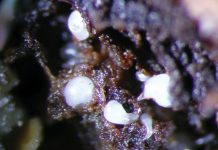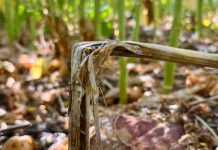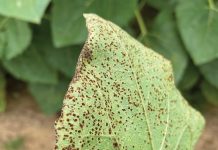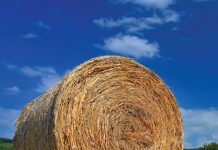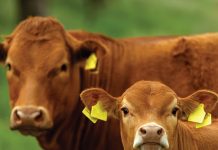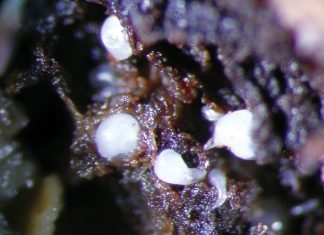In the category for wheat production in the northern irrigation areas, Ross Braithwaite from DT Farming near Winterton won with a yield of 11,270 t/ha with a Sensako variety from Syngenta, SST 8205.
Braithwaite farms on the farm Noodhulp and operates a true mixed farming enterprise comprising maize, wheat, soybeans, potatoes, cabbage, and cover crops. They also buy in beef weaner cattle which they grow out and finish in the feedlot.
Winning cultivar
It was the first year that they planted SST 8205. They planted the variety on 38 ha as a trial and managed it according to their normal practices for wheat production. The particular field that was entered into the competition was planted on 9 June 2023 with a John Deere No-Till Drill to a plant population of 110 kg/ha and a row width of 19 cm. The field was harvested on 20 November 2023.
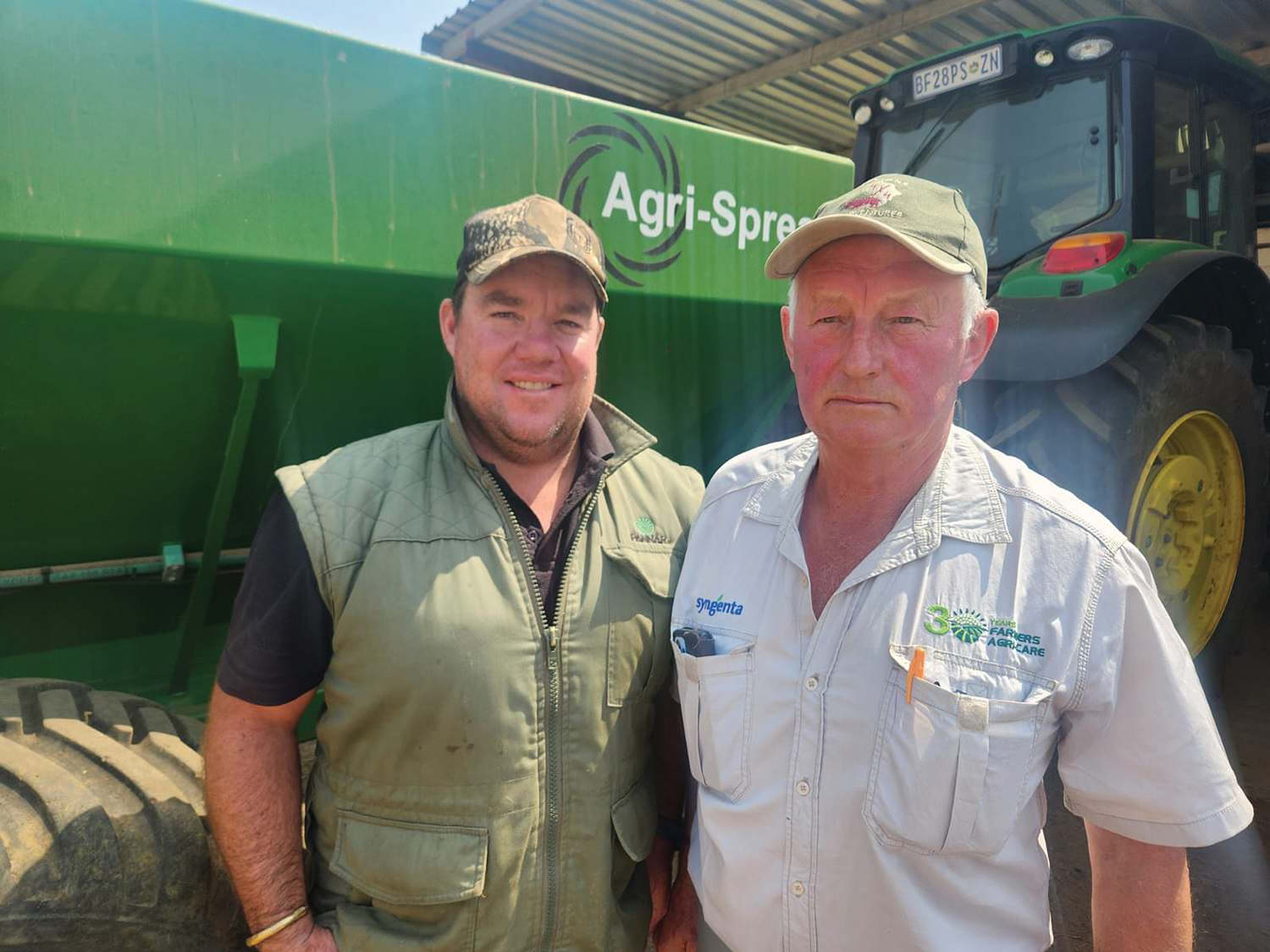
Braithwaite states that their biggest challenge during the 2023/2024 season was the tough and unpredictable weather patterns at times, which were quite abnormal for the season. The average rainfall for the wheat season, spanning from 1 June to 31 October, was 125 mm. Through irrigation the wheat received an additional 277 mm of water, bringing the total amount of water received to 402 mm. If that is calculated to yield per millimetre water provided, it comes to 28 kg wheat/1 mm water.
They follow a crop rotation system in the following sequence: maize – soybeans – wheat – a cover crop – grazing. According to Braithwaite, they do not send livestock onto the wheat fields after harvest as they plant maize straight after harvesting. ‘We send the livestock onto the fields after the maize harvest and onto the cover crop fields for winter grazing.’
Minimum tillage is practised as far as possible. ‘Maize and soybeans are planted under no-till conditions, but when it is necessary, compaction areas will be worked with an in-line ripper as we don’t want to disturb the soil structure,’ he explains.
Braithwaite says that they try to do as much precision farming as possible. Although they do not yet do variable irrigation, they apply lime and dry fertiliser at a variable rate.
He believes seed treatments bring a great deal of value to the crop as it protects the plant from the start and keeps it healthy. They used the following seed treatments for the 2023/2024 production season: Ronsek 600 FS from Villa Crop Protection, aCELLerate from Innovative Turf Solutions, Redigo from Bayer, as well as a biostimulant from Afrikelp to help with root development.
Diseases also pose a great challenge in their area, according to Braithwaite. To address this, they applied fungicides at various stages during the planting season. During the T1 stage, the following were applied: Miravis Neo from Syngenta, Sivanto from Bayer, Moddus from Syngenta, and BRANDT Smart Quatro Plus from WinField United.
During the T2 flag leaf stage, they applied Miravis Neo, Folimat from Arysta, Bioforge from Nexus and again Smart Quatro. At the T3 ear stage they applied Folimat, Prosara from Bayer, Amicor from FMC, and Smart KB.
Herbicides were applied five weeks after planting in a mix comprising Quator, Voloximil, Sarane from Corteva, and Afrikelp.
His philosophy around yield in comparison to profitability is simple: ‘As long as marginal revenue is higher than marginal cost, we fertilise for an 8 ton to 8,5 ton crop.’
A team effort
Braithwaite sees his dad, Hugh, who is now retired, and his father-in-law, Dieter Schröder, as his mentors. ‘I have been farming with Dieter for the past twelve years. He is still very active in our farming operation and very knowledgeable about beef and crop farming. In addition, he has a good business mind. He has taught me so much about soil and animal health and also to never take short cuts. If you do something, then you have to give it your best shot. In that way you have no regrets and can have a peaceful night’s sleep.’
His advice to young producers is to start by doing the basics first and get that right. ‘Do trials on your own to see if and how different products work for you. Protect your soil and build soil health.’
Braithwaite adds that it is important to get the right advice and equally important to surround oneself with knowledgeable people and experts in their respective fields, for example agronomists from fertiliser, seed, and chemical companies.
He concludes: ‘If you are not willing to do the small, seemly unimportant things, like having to unblock a pivot nozzle on a Sunday, you will never make it.’



